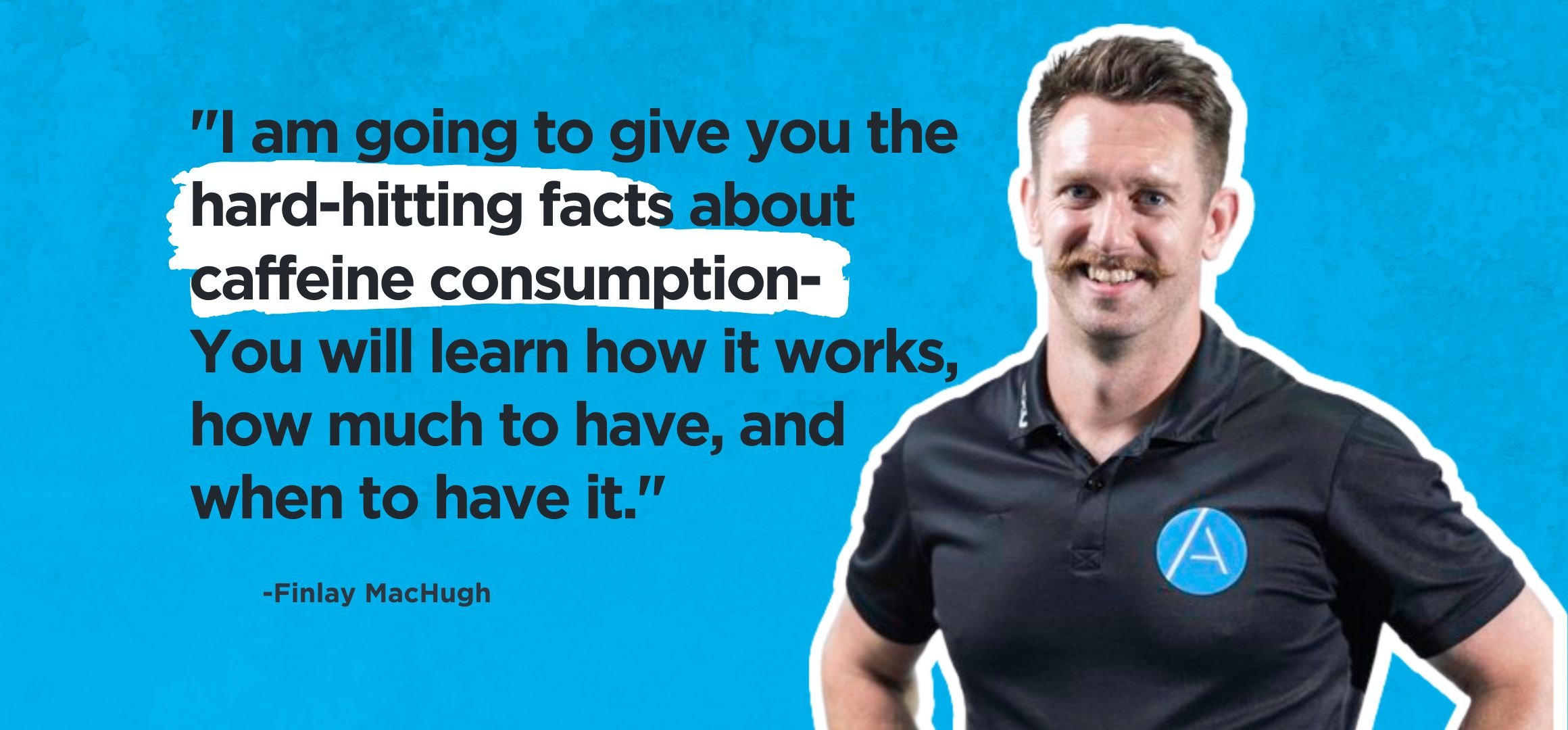A Cure for Coffeeholics- How to drink coffee to thrive, not just survive!
The amount of conflicting information that lazy health journalists spout about coffee is comparable with red wine. One minute, a cup of coffee is the cure-all-elixir-of-life, and the next it’s the root of all illness. It can be close to impossible to know what to believe amidst all the media hyperbole and old wives’ tales that make their rounds online.
That’s why today I am going to give you the hard-hitting facts about caffeine consumption, so that you can continue to slay in the professional world and pick up some social credibility along the way. You will learn how it works, how much to have, and when to have it.
1,3,7-trimethylaxanthine, or caffeine, is the world's most popular drug, consumed by 80% of the world's population via the medium of coffee. An estimated 2.25 billion cups of coffee are drunk each day, and I for one have contributed a fair chunk to that total.
Throughout history, caffeine has had a symbiotic relationship with high performing athletes and business professionals- except between 1984 and 2004, when high concentrations of caffeine were banned from all Olympic events. Endurance cyclists in the ‘80s and ‘90s would drink flat Coca Cola in the latter stages of tour events so they could get a caffeine kick and win their sprints. Not to mention in the competitive world of business, you would be considered a philistine to not at least offer a coffee when your prospective clients arrive for a meeting.
How does it make me feel so good?
When we break down energy compounds to function, we release adenosines, which act as the body’s sleep promoters. As these accumulate and bind with receptors (primarily) in the brain, we feel fatigued and drowsy. During sleep we clear the body of adenosine, and in the morning the whole process starts again.
Caffeine works by blocking adenosines from attaching to our neural receptors, and therefore staves off feelings of fatigue. This is called adenosine antagonism- it feels like you've been given more energy, when in fact what’s actually happening is that your feelings of fatigue have been muted.
Beyond this mechanism, caffeine has been proven to reduce the perception of difficulty during activities. So, when your coach gives you a particularly challenging set, you’ll likely get through it with a bit less complaint if you started your day with a coffee. Seriously though- caffein can reduce your rating of perceived exertion (RPE) by one whole point.
With reduced perception of pain, the brain and body will be more comfortable increasing effort, therefore improving physical or mental output.
How much caffeine is actually in coffee?
Sports scientists have a love hate relationship with caffeine from coffee. On one hand, it is easily found and unlikely to be contaminated with other substances. On the other hand, the caffeine content is highly variable, and an espresso can contain between 30 and 200mg of caffeine. For reference a standard can of red bull has 77.4mg.
Moreover, how you brew your coffee can impact how much caffeine is extracted. Typically, the more time your coffee has in contact with hot water, the more caffeine is extracted. Also, the size of your grind plays a part since a finer grind means more surface area for the water to contact with. And although a coarse grind is recommended, a French press can have close to 300mg of caffeine in it!
How much should you drink?
There are two rules for optimal caffeine dosage. Firstly, more is NOT better. And secondly, it’s relative.
In early caffeine research, scientists were focused on seeing maximum impact, meaning dosages during testing were high. After experimenting with dosages around 6-9mg/kg and upwards, they realised that it was effective but also came with many side effects- heightened heart rate, discomfort, and irritability being effects many of us may have experienced.
More recently, research has shown that dosages as low as 2mg/kg of body weight can be effective, particularly if you are using it for endurance activities like cycling (scientifically backed) or pulling an all-nighter to finish a report (not so scientifically backed).
What factors should you consider?
The most important factor is relative to your body weight. When considering how much coffee/caffeine is enough or too much, you should first ensure that your daily dosage is between 2 - 4mg per kg of body weight if you desire feelings of alertness.
Another factor you should consider is how much caffeine you are used to consuming. Much like training, your ‘caffeine-fitness’ will play a large part in how you respond.
If you have built up a tolerance it is likely you will require more to feel its effects.
When should you drink it?
Culturally, coffee is typically drunk first thing in the morning to get the engine started however I believe this is not as great an idea as your morning brain is telling you it is.
If you have good sleep hygiene and get between 7 and 8 hours of sleep a night (I realise this may not be the usual for many of us) then you likely won’t need coffee to function any better.
However, you will need it to reduce irritability from caffeine dependence for this to work in your favour. If your body is already dependent on caffeine, the burst of energy you feel post coffee isn’t a boost, but your body returning to homeostasis- normal function. In the perfect world coffee/caffeine should be consumed so you can go BEYOND your normal capabilities, not just break even.
So, if you have the sleep criteria ticked off, when should you drink it?
Caffeine takes between 30 and 60 minutes to hit peak concentrations in the blood, and the half-life can vary from 4 hours up to 12 (hence why it is not recommended to be drunk late at night).
Basically, if you are priming yourself for a 2 pm meeting, then I would recommend you get your coffee ordered and consumed around 1pm so you’re fully alert. If you start drinking it at the beginning of your meeting, then you’ll likely find yourself primed just as the meeting comes to a close.
Overall, we recommend:
⁃ Work out a rough caffeine to body weight starting point
⁃ Consider your current normal consumption
⁃ Get as much sleep as you can- it is still the cornerstone of health and productivity
⁃ Alter your brew type depending on how much caffeine you want
⁃ Drink 60 minutes before you need it
As a professional in Melbourne, we realise that you can be sucked into knocking back 4+ coffees a day and late into the night. At Absolute, we encourage moderation by giving you the tools so you can make informed decisions.
If you are finding yourself low on energy and bouncing from meeting to meeting without any zip, then speak to one of our team today and they can get you performing at your best again- no coffee required.

